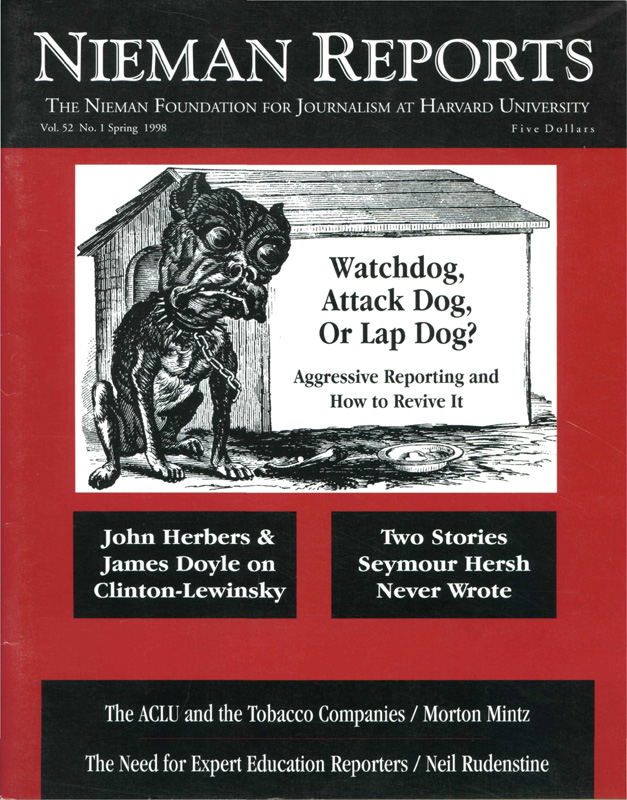An article in the winter 1997 issue of Nieman Reports, “Getting It Wrong on Whitewater,” refuted the widely reported belief that a portion of an illegal 1986 loan to Susan McDougal propped up Whitewater, and therefore benefited Whitewater investors Bill and Hillary Clinton. A major source of press misreporting of the story was a May 4, 1996, rewrite by The New York Times of an Associated Press dispatch. In its rewrite The Times reported that “money from an allegedly fraudulent loan went to benefit the Whitewater development. …Nearly $50,000 from a $300,000 loan…was used to cover Whitewater-related expenses.” Thereafter, reference to the tie between Whitewater and the illegal loan cropped up repeatedly in The Times and other publications.
“Getting It Wrong on Whitewater” showed how this element of the Whitewater story was “written about carelessly, or incompletely, or just plain falsely.” Nieman Reports sent the article to The Times prior to publication with a request for comment. The Times declined to respond. Nevertheless, on March 9, 1998, in a story by Stephen Labaton on the death of Susan McDougal’s former husband, James, The Times gave its misleading account new life when it again reported, “Investigators have determined that nearly $50,000 of that [illegal loan] money wound up paying Whitewater expenses.” The Associated Press also repeated the error.—Gilbert Cranberg.
“Getting It Wrong on Whitewater” showed how this element of the Whitewater story was “written about carelessly, or incompletely, or just plain falsely.” Nieman Reports sent the article to The Times prior to publication with a request for comment. The Times declined to respond. Nevertheless, on March 9, 1998, in a story by Stephen Labaton on the death of Susan McDougal’s former husband, James, The Times gave its misleading account new life when it again reported, “Investigators have determined that nearly $50,000 of that [illegal loan] money wound up paying Whitewater expenses.” The Associated Press also repeated the error.—Gilbert Cranberg.



